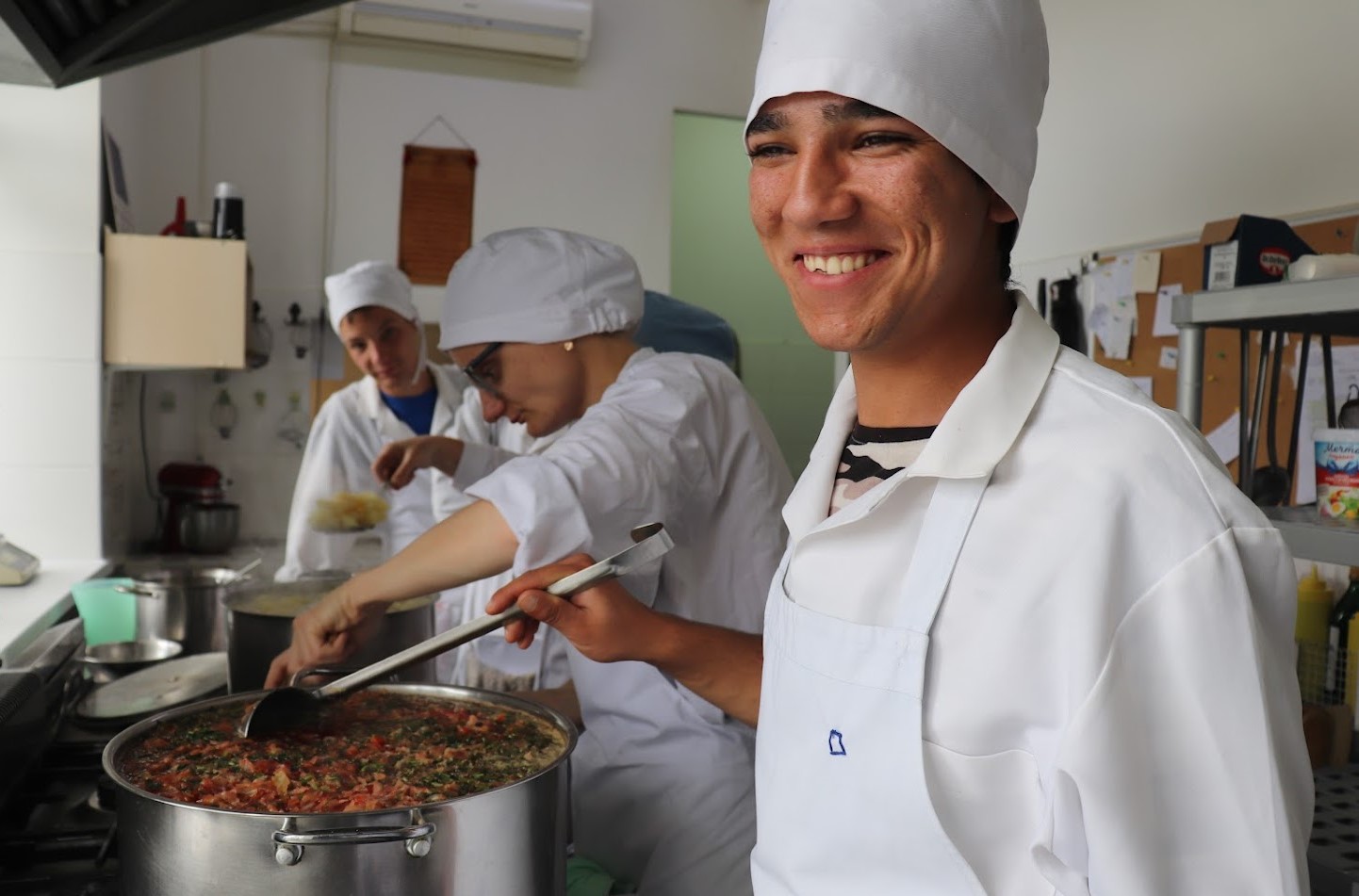Social entrepreneurship is a relatively new concept in the Republic of Moldova, and has only enjoyed a regulatory framework since 2017. Though this provides several measures to promote and support social enterprises, there aren’t enough rules in place to properly apply the legisation. These legal gaps can present serious challenges.
To overcome these obstacles, social entrepreneurs and other interested parties have engaged in numerous advocacy activities. EU4Youth’s EUnlocking project was designed to help release the potential of young social entrepreneurs. The project provided vital support by organising and promoting a national conference as well as initiatives like public consultations and awareness campaigns. By focusing on job creation, especially for people with disabilities and other disadvantaged groups, the EUnlocking project has managed to attract government funding for social enterprises in Moldova. As a result, they have had access to state subsidies since the start of 2021. Under the provisions of the new Employment Subsidy Regulation, social businesses can benefit from grants that cover between 50% and 300% of the costs of taxes, and monthly contributions towards the salaries of disadvantaged staff members (between €100 and €300 per employee).
To spread the word, the EUnlocking project held online legal consultations in September and October 2021, and let the beneficiaries speak for themselves. Mr Dumitru Braga is the 33-year-old manager of ‘Floare de cireș’ Ltd, a social enterprise from the village of Răzeni. The social enterprise ‘Floare de cires Catering’ was founded and launched as a small business with social objectives, creating employment and training opportunities for young people with disabilities. It currently employs 25 people: 13 women and 12 men, including 12 young people with disabilities.
The enteprise offers an extensive training programme empowering women and men to undertake what is often their first “real job” in the catering services. As trainees learn to prepare and serve local and international food, they grow in self-understanding and prepare themselves to serve as leaders in their families and communities. In a safe, supportive environment, men and women with disabilities learn fundamental job skills while simultaneously building up their résumés and work experience.
For the online legal consultations, more than 80 young social entrepreneurs and NGO representatives logged on to hear about Dumitru’s experiences in accessing state subsidies. He encouraged his audience to take advantage of the opportunities on offer, and explained how easy they are to access. He was very clear about the benefits, and keen to point out that, “It is especially important now, because of the pandemic and the restrictions imposed by the authorities on the catering sector, which my social enterprise is part of. Access to subsidies helped us tremendously: we were able to maintain jobs and payment levels for our 14 young disabled employees and staff from other disadvantaged categories in rural areas.”
The EUnlocking project team provides all the supporting documents necessary to facilitate and promote access to the subsidies. The materials, which include handy things like templates, are available here.
The EUnlocking project has achieved something remarkable. Not only has it provided all the support necessary for applying for these government subsidies, it has successfully mobilised active participation in their development. By helping to influence public policy, they have created a long-lasting, enabling environment for social entrepreneurs in the country.
The EUnlocking project (2020-2022) is funded under the European Union’s EU4Youth initiative, with the aim of unlocking the potential of young social entrepreneurs in Moldova and Ukraine. The project helps to foster the social entrepreneurial potential of young people in Moldova and Ukraine by establishing a favourable ecosystem for social enterprises, as well as by inspiring and supporting more young social entrepreneurs to develop and sustain their innovative solutions for the promotion of social inclusion and environmental sustainability across both countries.
Author: Sergiu Gurau
The project is implemented by the Gustav-Stresemann-Institut (e.V) (GSI) – lead organisation (Germany), AXA Management Consulting (Moldova), ECO-RAZENI Association (Moldova), Egalite International (Ukraine), National Assistance and Information Centre for NGOs in Moldova CONTACT (Moldova) and Pro NGO! e.V. (Germany). The project is co-funded by the European Union under its EU4Youth Programme.
Visible Impact is partnering with GSI and Pro NGO! to conduct several project activities.
